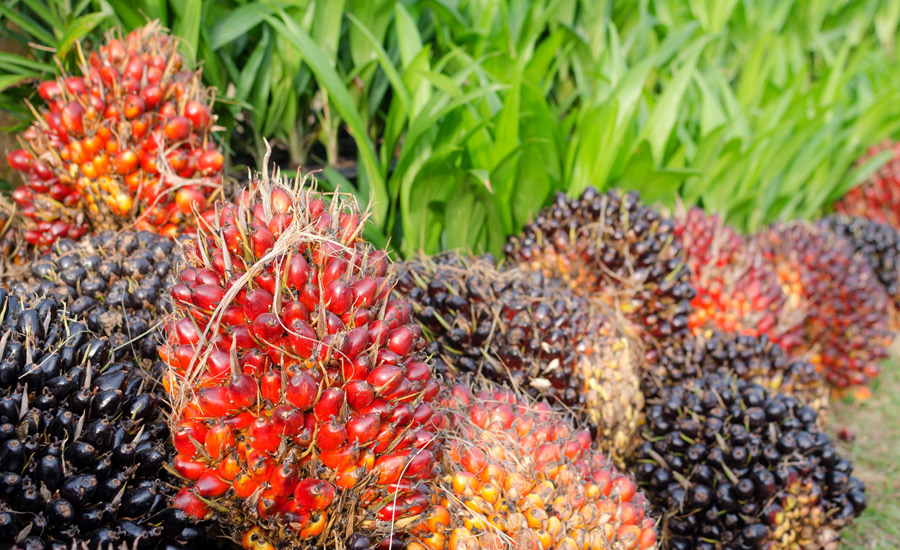Palsgaard A/S, inventor of the modern commercial emulsifier, also leads the way in sustainable palm oil consumption. The company is sharing its experiences to help others understand what is required via www.palsgaard.com/sustainable-emulsifiers/
After having supplied sustainable palm-based emulsifiers for some years, Danish-based, globally active Palsgaard now can deliver a broad range of emulsifiers based on segregated certified palm oil.
“It’s been a complicated task as we are using many different ingredient specialties where palm is the originating material, but we are currently expanding our range considerably and we are now able to satisfy most enquiries concerning emulsifiers and specialities based on sustainable palm oil,” explains CEO Jakob Thøisen.
Palsgaard has been a member of the Roundtable on Sustainable Palm Oil (RSPO) since 2008, and sees the topic of sustainability as an essential issue for protecting the global environment, upholding biodiversity and providing suitable working conditions for local plantation workers. The company offers sustainable emulsifier solutions based on segregated palm oil within a range of industry categories, including dairy, ice cream, bakery, confectionery and margarine.
Environmental protection isn’t the entire story, however, and Jakob Thøisen has a clear message for the food processing industry: “We believe that sustainable ingredients are an important component of the long-term economic and financial viability of food manufacturers – and it’s part of our role as a business partner to support this transformation.”
Sustainability at the heart
Thanks to visionary founder Einar Viggo Schou, sustainability has been at the heart of food ingredient manufacturer Palsgaard for more than a century. So the company’s move to join the RSPO, and ensure sustainable palm oil consumption for the company’s production of emulsifiers was, in fact, simply following a well-established strategy.
In the early 1900s, sustainability at Palsgaard centered around local engagement and responsibility. But with the company’s evolution into a global player with worldwide production facilities, application centers and offices, that focus has widened considerably. Today, Palsgaard holds the RSPO Supply Chain Certificates on MB (Mass Balance) and SG (Segregated) levels, making it able to provide a wide range of sustainable solutions to its customers’ needs. Sustainable products are, however, just one of numerous related activities throughout the company’s operations.
“Maintaining our lead in emulsifiers requires that sustainability is considered with every step we take,” says Jakob Thøisen. “Through sustainability initiatives that include considerable reductions in CO2 emissions and sustainable sourcing of palm oil, we try to set an example for food manufacturers and raw materials suppliers around the world – and we like to share this extensive experience to provide valuable guidance.”
Partnering
By partnering with Palsgaard, food manufacturers can meet demands for a sustainable business model on palm oil sourcing. And the company is fielding a growing number of calls from customers who want to know more about the difference between Segregated palm oil and Mass Balance products or find out what it would take for them to become SCCS-certified.
“Our achievements make us a natural place to start for manufacturers looking to source sustainable palm-based emulsifiers for their food products,” says Jakob Thøisen. “However, for those who wish to claim that their products are based on sustainable palm oil, so that consumers can identify their finished goods or the products their ingredients go into as sustainable, there is more to it than just buying responsibly manufactured ingredients.”
Achieving RSPO SCCS certification is a lengthy process with many different steps, from setting up guidelines for material handling flows in production to documentation of traceability and cleaning procedures in production. And it all varies depending on whether the producer is aiming for MB or SG certification. Food producers will need an implemented and RSPO-approved system for administration of purchases and sales for the MB level, and specific production processes for SG certification.
As Palsgaard is certified according to both levels, the company knows the approval process in intricate detail, making it a valuable source of know-how. To promote knowledge transfer, the sustainable emulsifier producer has provided a contact form on its website (www.palsgaard.com/sustainable-emulsifiers).
For questions, please contact
Jens Victor Fischer
Global Marketing & Business Development Manager
Palsgaard A/S
jvf@palsgaard.dk
+45 3049 3109
www.palsgaard.com
Palsgaard: Sustainable Emulsifiers
Palsgaard A/S can deliver a broad range of emulsifiers based on segregated certified palm oil
